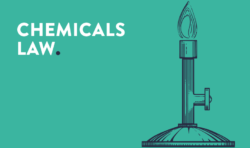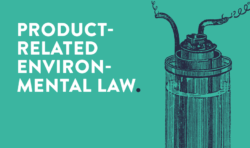Since 05.01.2021, suppliers of products in the EU are generally obliged to submit reports to the SCIP database (cf. on this already Produktkanzlei – SCIP database online from end of October). The obligation to report only applies to suppliers who supply articles to commercial customers if the articles supplied contain a substance of very high concern (cf. SVHC list available at ECHA website) in a concentration of more than 0.1 percent by weight (w/w).
The access possibilities now available via the SCIP database will also have an impact on internal company mechanisms in the area of material compliance. Beyond the consideration of contractual obligations, test reports and supplier declarations, it is now also likely to be necessary to clarify whether and, if so, with what frequency independent checks on the part of the customers using the SCIP database should also be included in the processes in order to comply with the company’s own due diligence obligations.
Furthermore, it must be taken into account that the availability of information via the SCIP database does not eliminate the information obligations in the supply chain according to Article 33 REACH. In the case of deliveries to commercial customers, there is still an obligation to proactively pass on information on substances of very high concern in articles to the customer in accordance with Article 33(1) REACH. The same obligation also applies to consumers, but only upon request (see Article 33(2) REACH). In both cases, the mere reference to the availability of the information in the SCIP database is not sufficient to fulfill the information obligation.
It is to be expected that the amount of information available via the SCIP database will continue to grow in the coming months and years. The corresponding requirement originates from the Waste Framework Directive and needed to be implemented by legal acts at the level of the member states in order to impose a concrete obligation on the companies concerned. In some cases, there is still a lack of concrete specifications regarding the use of the database or specific sanction regulations (see, for example, Produktkanzlei – Reporting obligation for SVHCs implemented in German law for implementation in Germany). As far as can be seen, separate enforcement measures to verify compliance with the reporting obligation have not yet taken place to any great extent. For the future, however, it is to be expected that the implementation pressure on the companies concerned will certainly increase. This will be supported not least by public access via the SCIP database and the resulting increased transparency.
Do you have any questions about this news, or would you like to discuss the news with the author? Please contact: Martin Ahlhaus





